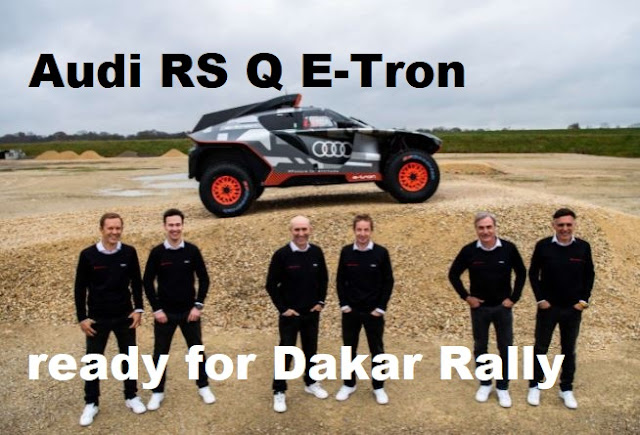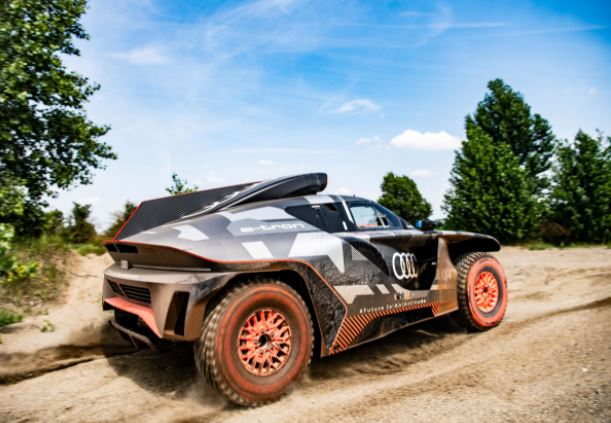"The Dakar Rally is the greatest challenge imaginable for our innovative electric drive with a high-voltage battery and high-performance energy converter," says Julius Seebach, Managing Director of Audi Sport GmbH, Audi responsible for motorsport. "Never before at Audi Sport have we prepared such a complex vehicle in such a short time. The Dakar Rally - the longest and most demanding rally in the world - is now the most important test for us and for this car."
Audi sends three cars (teams) to Dakar.
Because there are no charging opportunities in the desert, Audi has chosen to install a highly efficient turbo fuel stratified injection (TFSI) engine onboard the car. It is part of an energy converter that charges the high-voltage battery while driving.
The drivetrain of the Audi RS Q e-tron is electric. The front and rear axles are fitted with a motor-generator unit (MGU) from the current Audi e-tron FE07 Formula E car, developed by Audi Sport for the 2021 season. Only minor modifications had to be made to use the MGU in the Dakar Rally.
A third MGU of identical design is part of the energy converter and recharges the high-voltage battery while driving. In addition, energy is recuperated during braking. The battery weighs about 370 kilograms and has a capacity of around 50 kWh.
In other words, it is a glorified Plug-in Hybrid. The only difference is that the TFSI engine does not power the wheels. I like the concept. Having a purely electric car is taking a big chance.


